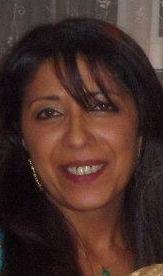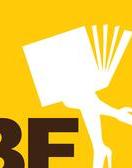
Savita Kalhan
Author Savita Kalhan, takes the time to answer a few questions about her thrilling debut novel, The Long Weekend. Click HERE to check out my review of this gripping heart-in-mouth novel.BookFabulous: So, let’s start with the theme of The Long Weekend: an abduction of two pre-teen boys. What was the reason behind wanting to take on such a heart-wrenching, traumatic topic?
Savita Kalhan: It is a traumatic topic, and it is heart-wrenching too. The news today from right across the world is full of such terrible stories. It’s a difficult subject for teen fiction – for the writer and the reader, so very little has been written for teenagers on the subject. I think it depends on how it’s approached – with sensitivity, without graphic details, and yet without shying away from the terrible reality of what happens when a child is abducted. And for me any such book must be gripping and real. Those are pretty difficult criteria to cover!
The initial inspiration for The Long Weekend came from a flyer that went round the local schools warning parents and children that a large flashy car had been trying to abduct kids after school. Parents and kids were warned to be alert and report anything suspicious. As a mother I know that the school gates at pick-up time is a frenzied chaotic period of time. I wondered how easy it would be for a child to be taken – particularly kids aged 11- 15, who think that it could never happen to them. But, as we all know, tragically it does happen.A scenario came to my mind where it could happen with frightening ease. I set aside the story I had been writing as The Long Weekend took over.
BF: I thought this was a cleverly written book for the way you were able to convey the sizable trauma abduction victims suffer (whether during their ordeal or after) relying on insinuation rather than gruesome graphic detailed descriptions. Although having said that, this technique, in my opinion, added a scarier dimension to the novel. Was that done intentionally maybe due to the sensitivity of certain parts of the book with regard to the age group that the novel is mainly targeting?
SK: Yes, it was intentional. I didn’t want the book to be graphic in any way given the subject matter of the book and that young teenagers would be reading it. I don’t believe that a book has to be graphic in order to still have a strong impact on the reader, and indeed, it can, as you say, make the book feel even scarier. Our imaginations are very vivid. Where the words stop, the mind takes over and takes those few words and the unspoken words and images to paint a whole picture – particularly when the reader has stepped into the character’s mind.
BF: Lloyd and Sam are two boys who obviously come from two different social backgrounds. Lloyd is the rich cool boy at school who everyone wants to be like and Sam comes from a middle class working background with slightly stricter home rules (no mobile phones and no play station). Do you think this discrepancy in backgrounds played a role in how the two boys handled their situation? And do you think if Lloyd had been more like Sam he would have been spared his ordeal?
SK: The difference in the boys’ backgrounds facilitated aspects of the storyline in The Long Weekend, but I think it was their very different characters that played a larger role in how they dealt with the situation. In all honesty, I’m not sure Lloyd would not have been spared his ordeal if he had been more like Sam. The crux of the book would have changed, and the gut-wrenching aspect of what happens and how the boys deal with it would have been lost.
BF: What would you like the children who read the novel to get out of it?SK: I’d like them to enjoy the book, to find it a gripping, absorbing read, and for it to be a memorable one, a story that stays with them long after they’ve put the book down. There is also a cautionary note to the story. Teachers have told me that The Long Weekend is far better than any school assembly talk on stranger-danger. Kids have told me the same.
BF: This is your debut novel. So how long did it take to complete ‘The Long Weekend’ and what were the main challenges you faced during the process?SK: Once I had the idea for the book, the story and characters came very quickly. The first draft of the book was finished within a few months, except for the last chapter, the Epilogue, which was written several months later. During the writing process, the challenges came mainly from deciding how far to go in terms of how traumatic Sam and Lloyd’s experiences would be. I have to admit that I did have a few nightmares while I was writing the book – the monster was all too real! Once the first draft was written, I read it through and edited it. A couple of friends did the same for me. And then I left it in a drawer for a few months before sending it off. It was quite a different book to anything I had ever written before, so I was a little nervous of how it would be taken.
BF: Away from the ‘The Long Weekend’, have you always known you wanted to be a writer and what influences shaped or continue to shape your journey? Have you got a writing regime that you abide by or do you write when inspiration strikes?SK: When I was growing up I never thought I would be, or could be, a published writer. The journey has been a very long meandering one. I started writing while I was teaching English in the Middle East. The city I was in had one book shop, everything was vetted by the authorities and most books and magazines were censored, many banned, so I used to hide lots of books in my suitcase when returning there after holidaying in the UK. I was reading everything then, and still do, but I was going through an epic fantasy phase and sharing my books with a friend, which led us to try our hand at writing one. Well, my friend decided I should write the first chapter and she would write the next, but what actually happened was that I ended up writing the whole trilogy, and she became my reader.
I do have a writing regime and without it I would be lost. I do the school run in the morning, then to the gym, and aim to start work by about ten. I usually aim to work right through the day into the early evening, and sometimes into the weekend too. It all depends on the story. If I take a break it’s to walk down to my allotment, which is great for thinking, for getting over writer’s block, and for switching off for a while too.
BF: ‘The Long Weekend’ is your debut novel. Has getting it published affected your writing in any way? Are there certain aspects in the publishing world that you found challenging or even helpful based on your experience?SK: As much as you don’t want it to affect your writing, what you write and how you write it, there is an inevitable impact. In the publishing world today, writers are told they need a ‘brand’, something which sets them apart from other writers in their field. The parameters of that branding are shrinking, the niche becoming all-important. They want you to own it, make it yours, so they can sell and promote you better. That’s great for them, but it’s a challenging time for writers.
BF: With regards to marketing the book, what technique had most impact on your sales? And where do you see social media’s role in the fame of an author and consequently the sales of their book/s?SK: Social media has a huge role in a writer’s career. Publishers want to see their writers being active on Twitter, Facebook, and other social media sites. Writers feel pressured to blog, to be active on the internet. Book bloggers love reading and writing about books, so publishers and writers want them reading and writing about their books. Obviously all of this is important in terms of promoting your book, your name, your brand as a writer, because if no one has heard of you, no one will have heard of your book. For me, Twitter has been very good. It led me to lots of amazing book bloggers, who have loved my book and wanted to read and shout about it! And, yes, it does help sales, but it also spreads your name as a serious writer.
BF: What advice would you give to aspiring writers or for those with the dreaded ‘writer’s block’?SK: Every writer you speak to will have different techniques for trying to get over that ‘writer’s block’ moment. It helps me to talk over the plot with someone I trust. Those brain-storming sessions have helped enormously. If the story is really stuck, I go back to the beginning and start reading it again, tweaking things here and there while I’m waiting for inspiration or for that ‘light-bulb going on’ moment. Setting the manuscript aside for a while and writing a short story or some opening chapters of other story ideas has worked for me too. And if all else fails, take a walk, take a few days off. A short break can work wonders.
BF: According to research, kids are reading less and particularly boys. Do you think this is due to modern lifestyle such as electronic games and gadgets or is it due to the fact that authors are failing to spark boys’ interest with subjects that aren’t relevant enough?SK: The modern lifestyle of most teenagers, boys and girls, doesn’t help – they see relaxation as switching on their PlayStation or going on You Tube, Facebook etc., and this is definitely more the case with boys than with girls. Having said that, boys are still reading. They take a little more to be inspired to read and the choice of books for them has definitely dwindled. Browse through the teen section of any book shop and you’ll see that for yourself. My teen son despairs at the shelves full of one particular type of fiction that’s clearly aimed at girls, with very little choice for boys. It’s not to do with the writers. It’s because of publishers trying to get the maximum sales from the group they think buys the most books. Not so long ago, there was space on the shelves and a little more vision on the part of publishers for a wider variety of books.
BF: When you read, do you prefer traditional paper books or e-books?SK: I have to say I still prefer paper books, although having said that I wouldn’t be without my Kindle! I usually have a book on the go in both formats.
BF: What are you reading now?SK: I’ve just started Toby’s Room by Pat Barker.
BF: And finally what’s your favorite book of all time?SK: Now if you had asked me for a top ten I would have struggled! My favorite book of all time is A Fine Balance by Rohinton Mistry, and I would thoroughly recommend it if you haven’t had a chance to read it yet.
The Long Weekend has a book trailer, here’s the link – http://www.youtube.com/watch?v=14TfYyHgD6Y and you can find Savita Kalhan on Twitter: @savitakalhan and on Facebook: http://www.facebook.com/pages/The-Long-Weekend-Savita-Kalhan/117223691628538?ref=hlSavita Kalhan's website: http://www.savitakalhan.com/

